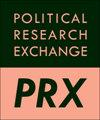Policy congruence and strategic loyalty: which parties nominate candidates dissatisfied with democracy? Evidence from 11 European countries
IF 1.8
Q2 POLITICAL SCIENCE
引用次数: 3
Abstract
ABSTRACT This article considers the interplay between the democratic attitudes of candidates and their nomination through political parties. The focus is on candidates who articulate a dissatisfied attitude towards the current status of democracy, and the research interest lies on the parties that might nominate such candidates in national elections. In doing so, the article establishes a link between work on the democratic beliefs of candidates as a specific part of the political elite and literature on party behaviour. The study is grounded in both classical attempts and recent work on political elites and candidate nomination, and its theoretical framework is based on the assumption that parties principally select supportive candidates. Two major mechanisms are investigated: on the one hand, nomination as an expression of policy congruence between the party and its candidates, on the other, candidate nomination as a way to maintain loyalty with the party’s strategic behaviour in parliament. In a first empirical attempt to this research interest, the study analyses data from 76 parties in 11 European countries.政策一致性与战略忠诚:哪些政党提名对民主不满的候选人?来自11个欧洲国家的证据
摘要本文探讨了候选人的民主态度与政党提名之间的相互作用。重点是那些对民主现状持不满态度的候选人,研究兴趣在于可能在全国选举中提名这些候选人的政党。在这样做的过程中,这篇文章在关于作为政治精英特定组成部分的候选人的民主信仰的工作与关于政党行为的文献之间建立了联系。这项研究基于对政治精英和候选人提名的经典尝试和最近的工作,其理论框架基于政党主要选择支持候选人的假设。调查了两种主要机制:一方面,提名是该党与其候选人之间政策一致性的表现,另一方面,候选人提名是对该党在议会中的战略行为保持忠诚的一种方式。该研究分析了来自11个欧洲国家76个政党的数据,这是对这一研究兴趣的首次实证尝试。
本文章由计算机程序翻译,如有差异,请以英文原文为准。
求助全文
约1分钟内获得全文
求助全文

 求助内容:
求助内容: 应助结果提醒方式:
应助结果提醒方式:


